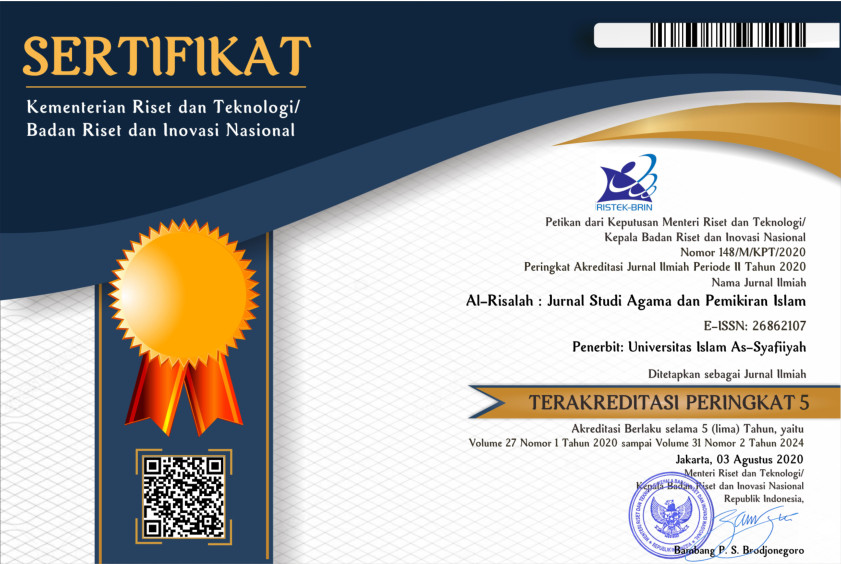NILAI-NILAI PENDIDIKAN ANTI KORUPSI PERSPEKTIF AL-QUR’AN DAN HADITS
Abstract
Abstract (In English). This study aims to determine the values of no-corruption education in the perspective of the Qur'an and Hadith. This type of research is library research by reviewing the literature related to the discussion. Data analysis using descriptive. The results of the study show that Islam through the Qur'an and Hadith as a source of legal teachings strictly forbids its followers to commit acts of corruption, by threatening very severe punishments both in this world and in the hereafter, in conveying these rules, it is carried out with a process of education in order to form attitudes, characters from students about the language of corruption.
Keywords: Educational Values, No Corruption, Qur'an and Hadith
Abstract (In Bahasa). Penelitian ini bertujuan untuk mengetahui nilai-nilai pendididkan anti korupsi dalam perspektif Al-Qur’an dan Hadits. Jenis penelitian ini adalah library reseach dengan mengkaji literaratur yang berkaitan dengan pembahasan. Analisis data menggunakan deskriptif. Hasil penelitian menunjukkan bahwa agama Islam melalui Al-Qur’an dan Hadits sebagai sumber hukum ajarannya dengan tegas melarang keras umatnya untuk jangan melakukan tindakan korupsi, dengan memberikan ancaman hukuman yang sangat berat baik di dunia maupun di akhirat kelak, dalam menyampaikan aturan tersebut dilakukan dengan proses pendidikan agar terbentuk sikap, karakter dari diri peserta didik akan Bahasa korupsi
Keywords: Nilai-Nilai Pendidikan, Anti Korupsi, Al-Qur’an Hadits
Copyright (c) 2022 Tahdzib Al-Akhlaq: Jurnal Pendidikan Islam

This work is licensed under a Creative Commons Attribution 4.0 International License.
This work is licensed under a Lisensi Creative Commons Atribusi 4.0 Internasional.
Authors who publish with this journal agree to the following terms:
- Authors retain copyright and grant the journal right of first publication with the work simultaneously licensed under a Creative Commons Attribution License that allows others to share the work with an acknowledgment of the work's authorship and initial publication in this journal.
- Authors are able to enter into separate, additional contractual arrangements for the non-exclusive distribution of the journal's published version of the work (e.g., post it to an institutional repository or publish it in a book), with an acknowledgment of its initial publication in this journal.
- Authors are permitted and encouraged to post their work online (e.g., in institutional repositories or on their website) prior to and during the submission process, as it can lead to productive exchanges, as well as earlier and greater citation of published work (See The Effect of Open Access).





